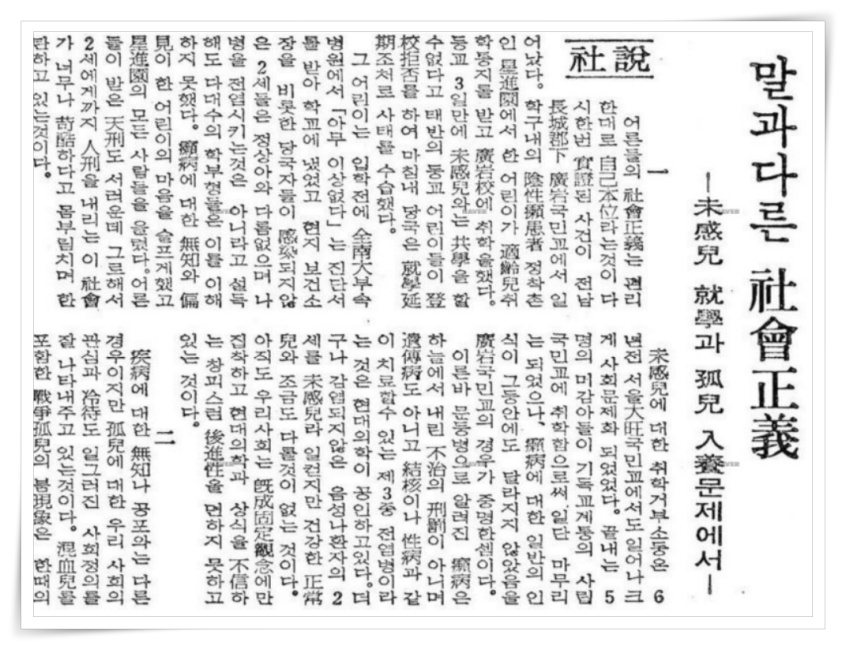- Headline: "Empty Words of Social Justice"
- Source: Chosun Ilbo
- Date of Publication: March 22, 1975
- Summary:
Our society’s neglect of orphans exposes the distortion of social justice. While the emergence of mixed-race children and war orphans was an unavoidable consequence of past conflicts, the 1970s have seen a significant rise in infants abandoned by unwed mothers. This troubling trend demands urgent attention. In the past, mixed-race war orphans being adopted into their father’s homeland was seen as a relief. However, in recent years, the number of pure Korean-blooded orphans adopted into Western and American families has surged to levels 8 to 10 times higher than those of mixed-race children.
Although the specifics vary by country, nations accepting Korean orphans often provide government subsidies to adoptive families. Yet raising a child is the highest moral duty of humanity, and without a sense of compassion and altruism, such an endeavor would be impossible. Numerous foreign families have embraced Korean orphans and raised them as their own, treating them no differently from their biological children.
Despite this, domestic adoption rates remain at only half the level of international adoptions. Among these, the majority of domestic adoptions are driven by male-preference traditions, with families seeking to continue their lineage. Legal barriers contribute to the challenges of domestic adoption, but the root issue lies deeper. Legislative reform is necessary, but even more critical is fostering a sense of moral obligation and compassion within society. Our society preaches justice and human rights in words but fails to follow through with action. The issues of children born to unwed mothers and child abandonment have been dichotomized as societal evils, while the act of adoption is framed as a form of social justice grounded in humanitarianism and altruism. Within this framework, the parental rights of unwed mothers and impoverished families are overshadowed by the moral legitimacy attributed to adoption. CLICK the article below to view the original scanned article as it appeared in print, complete with text and images, on the Naver News Library, which archives Korean newspapers from the 1920s to the 1990s. For easier reading, click “텍스트 보기” (View text) in the top right corner to open a text-only window.
Note: Articles are in Korean, and English translations are not provided in the library.  The English summary and translation of this article is provided by UMI4AA.
|
